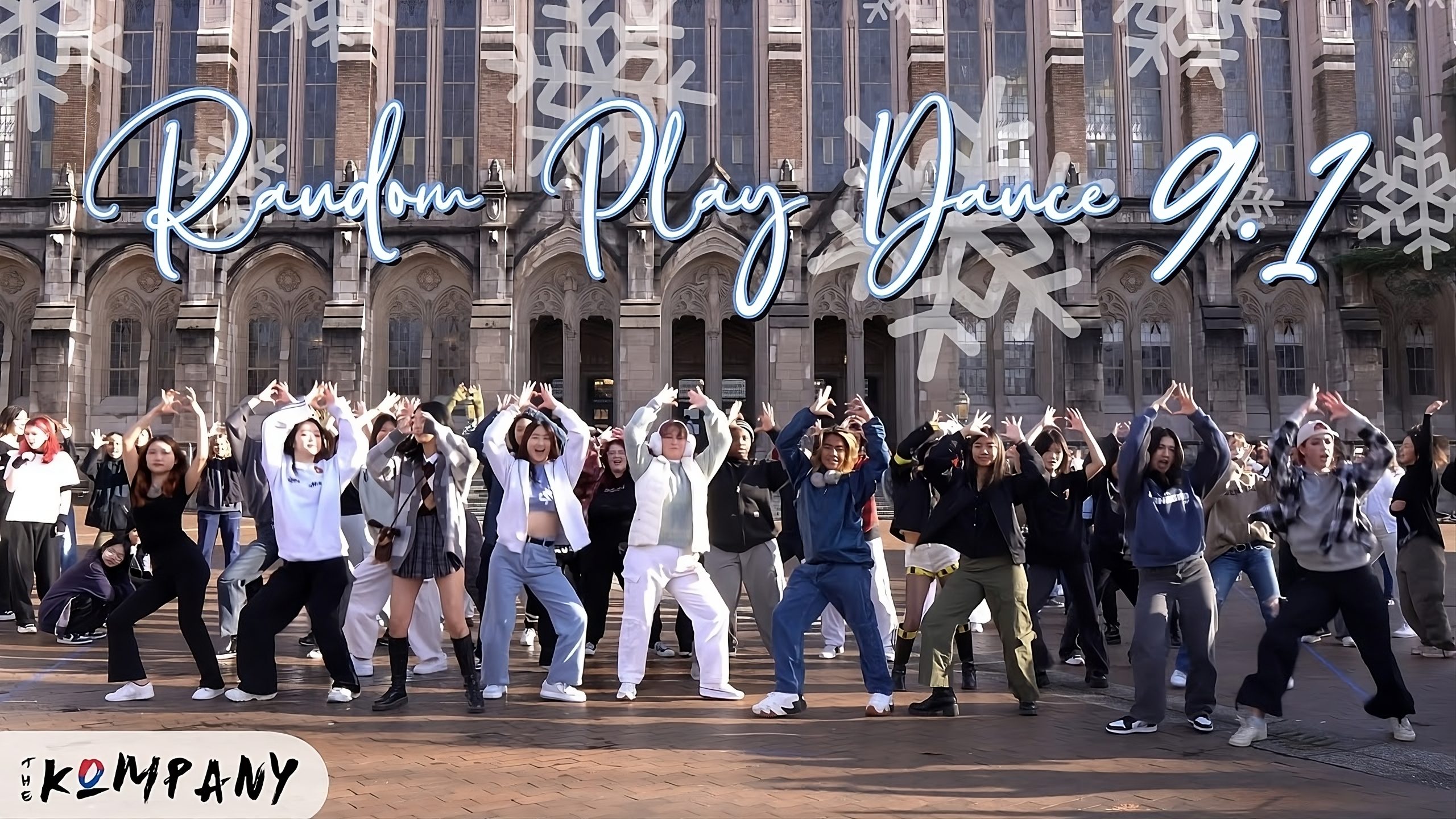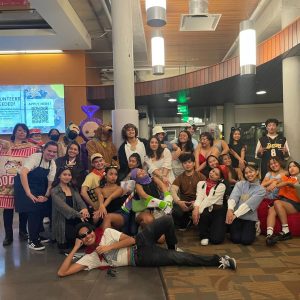From Classroom to Practice Room: How Do Cultural Dance RSOs Shape Communities?
Angel Huang & Leilani L. Batac
Dance transcends spoken language, emerging as a vibrant universal medium of expression and connection. At the University of Washington (UW), dance Registered Student Organizations (RSOs) like The Kompany and The Sayaw Filipino Folk Dance Troupe exemplify this, serving as crucial cultural and communal platforms. Through the universal language of dance, these groups unite students from diverse backgrounds, fostering a sense of community and shared culture that deeply integrates into their identities and enhances the idea of the collegiate ideal. As David Brooks describes, these groups embody the concept of a “thick institution,” which “becomes part of a person’s identity and engages the whole person” (Brooks, 2017, p. 1).
The Kompany UW, established in 2017 by Eric Tang, is the first K-pop dance club on campus. It was founded with the goal of uniting those interested in K-pop dance cover culture. Over the years, the club has not only grown stronger but also extended its reach to the greater Seattle community through various events. One of the co-presidents from the club shared her experience during our interview. “When I first entered college, I was a big K-pop fan but lacked a group of friends with similar interests,” she explained. As a self-taught dancer, she found that the club not only enhanced her dance skills but also helped her make new friends and forge significant social connections, deeply impacting her college life. “All of my friends from school are from The Kompany,” she noted. More than fostering a sense of belonging among its members, The Kompany also strives to create a communal space for the Seattle area at large, promoting engagement through initiatives like the public ‘Random K-pop Dance Challenge‘ on Red Square and collaborations with other RSOs. These activities exemplify how The Kompany, as a “thick institution,” plays a pivotal role in building community through shared passions and collective experience, even when people graduate from college.

Alongside student-led clubs like The Kompany, there exists a vast array of other dance Registered Student Organizations (RSOs) that foster a sense of community through dance and shared cultures. One such organization is The Sayaw Filipino Folk Dance Troupe, a dance group affiliated with the Filipino American Student Association (FASA) at the University of Washington. Taking the name from a Filipino word meaning “dance,” Sayaw not only preserves and promotes the stories of the rich heritage and culture of the Philippines through the artistic expression of dance but also serves as a vital cultural bridge for both Filipino and non-Filipino students and the wider community. Through their performances and workshops, Sayaw cultivates an appreciation for cultural heritage and provides a platform for students to connect with their roots and with each other, echoing the ideas of the collegiate ideal, thick institutions, and place and connectedness around the campus.
During an interview with Jaimar Sugui, a Sayaw Dancer and Dance Major, he shared that due to not growing up surrounded by a large Filipino community and having danced ballet for the majority of his life (from third grade up until his sophomore year of high school), he was only familiar with so much of his culture. He shared that he joined Sayaw to fully immerse himself in the different dance styles and “go back to [his] roots.” In turn, he got what he hoped for. Now in his second year as a Sayaw dancer, Jaimar expressed how much creative space and agency this RSO provides him to connect with and understand his cultural heritage. That being him learning things such as the different regions of the Philippines and what folk dances originated/are traditionally performed in said regions. He also noted that once he got to the UW and joined Sayaw, he felt that he finally found his Filipino community. He finds that there is a sense of intimacy and identity over a transactional relationship between the different members of this RSO. More than holding space for its members to build a connection to, strengthen one’s understanding, and grow an appreciation for the Filipino heritage and culture, Sayaw aims to cultivate a space for a unique community to flourish and for its members to connect, relate, and learn from each other through events like Sayaw’s Halloween practice. These sorts of activities capture how The Sayaw Filipino Folk Dance Troupe, as a “thick institution” and a “place of connectedness,” plays a crucial role in nurturing a unique community through shared interests and experiences, both within and outside the practice room.

With all that has been said in mind, The Kompany and The Sayaw Filipino Folk Dance Troupe provide folks with such impactful places — both physical and social, serving as crucial cultural and communal platforms, echoing the ideas of the collegiate ideal, thick institutions, and place and connectedness around the campus. Through the universal language of dance and their cultural focuses, both RSOs establish unique spaces where folks from diverse backgrounds — within the UW community and the broader Seattle area — come together based on shared dance and cultural experiences or interests, which, in turn, creates space that fosters so much more. They cultivate spaces for folks to nurture both commonalities and differences. They create spaces that promote respect, unionization, and collaboration between students and different RSOs. They provide spaces for folks to spend time together, not only to dance but to have fun and be goofy. These RSOs create spaces where folks can feel a sense of belonging — not to feel isolated but surrounded by folks they can relate to, fostering lasting connections and meaningful relationships. In short, these RSOs create unique spaces for unique communities through the mediums of dance and culture.
Special thanks to the Co-President from The Kompany & Jaimar Sugui for sharing their experiences!
*The interviewee from The Kompany has requested to remain anonymous.
Our group used ChatGPT for grammatical checks and proofreading after our original writing. We used it as an AI guiding tool, but the final narrative and reflections are our own.
References:
Brooks, D. (2017). How to Leave a Mark on People. The New York Times Retrieved May 20, 2024 from: https://nyti.ms/2pwdTYz
Media Attributions
- [THE KOMPANY UW] K-Pop Random Play Dance in Public 9.1 © The Kompany is licensed under a CC BY-NC (Attribution NonCommercial) license
- Sayaw 2023 Halloween © The Sayaw Filipino Folk Dance Troupe is licensed under a CC BY-NC (Attribution NonCommercial) license

